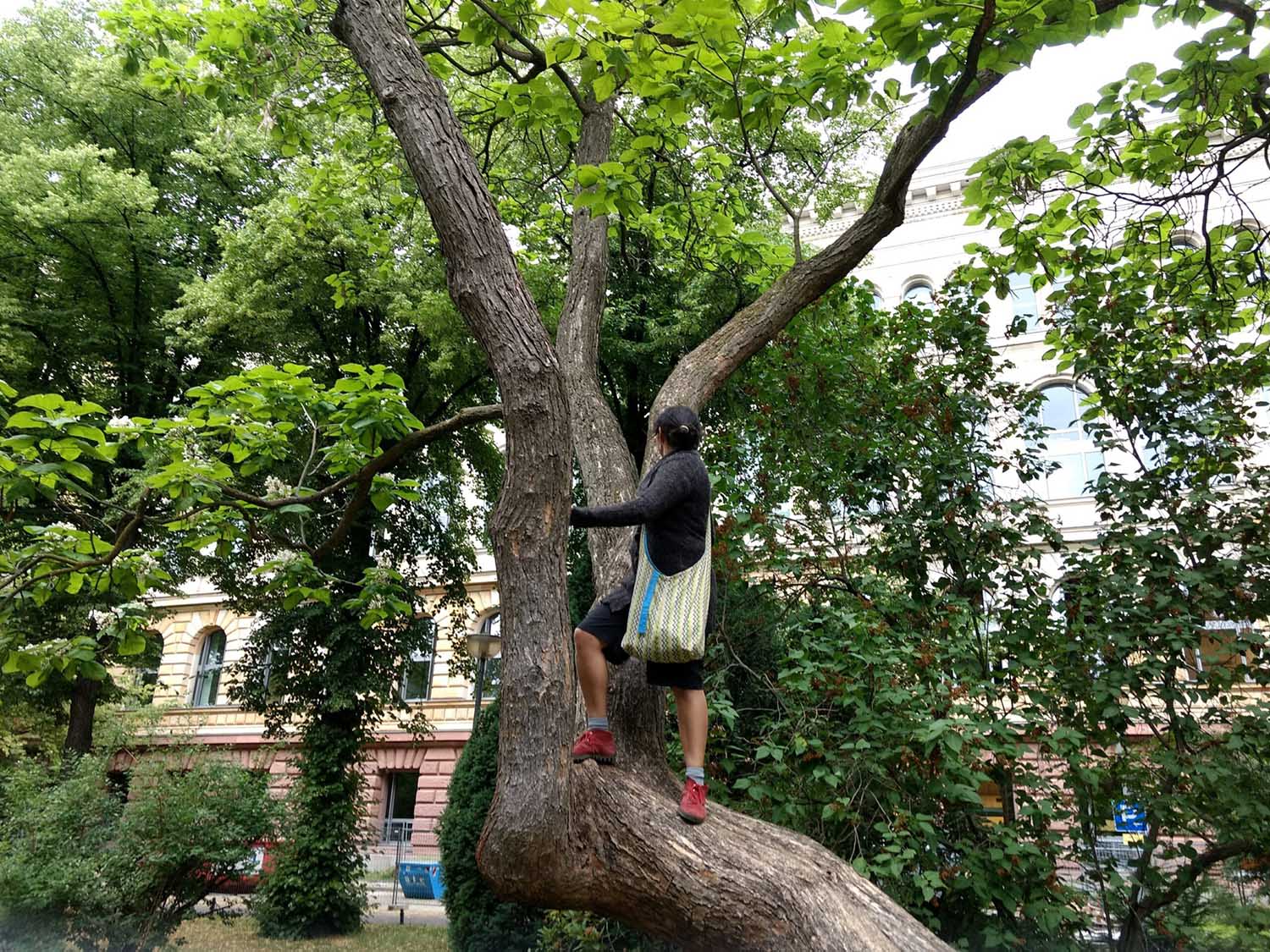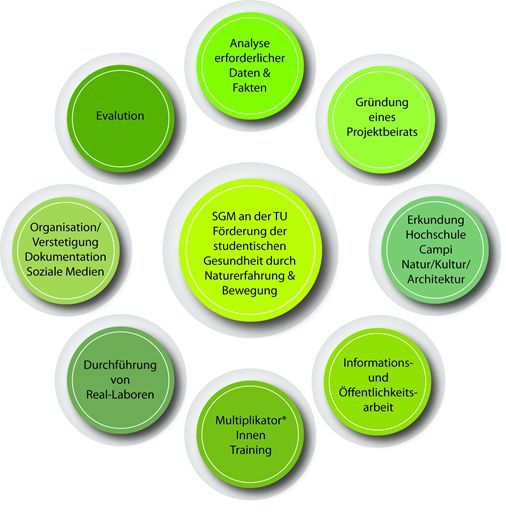Living Lab
Experience. Campus
Health and movement in an urban context
The project Experience. Campus. Health and Movement in an Urban Context is about student health promotion in the broadest sense, including multifunctional movement opportunities and mindfulness-based nature and architectural experiences in public space. The main venue is the campus of the TU Berlin and the adjacent city quarter. It is an interdisciplinary and intergenerational project.
In this context, the topic of “Well-Being” will be further defined in the sense of the Okanagan Charter, a programme of the international alliance of health-promoting universities.
According to the Okanagan Charter, a health-promoting living, working and studying environment also includes a green, ecologically high-quality and sustainable environment in which individuals can experience themselves as self-effective and meaningful and in which social cohesion is strengthened. What exactly this means and how it can be implemented concretely, within the framework of a behavioural and situational prevention approach, still needs to be examined and researched in more detail. Not least after the Corona crisis, an interdependent relationship between humans and the environment, in which different levels of stress play an important role, is becoming increasingly clear (Atlas of Globalisation).
One component of the project can consist of experimental and co-creative participation formats in real-world laboratories. For example, it can be explored what kind of walking or cycling paths exist between the campus and its surroundings, what qualities of well-being can be found there and how these can be used as stress-reducing places of movement and encounter.
New formats could also be examined within which movement, health promotion and addiction prevention are understood in a university and in an urban context beyond the specifications of the Prevention Act, e.g. as an experience of nature and creative activity, in order to be able to depict a perception-related connection between the inner mental, the physical-sensual and the outer world of experience.
Taking this further, it is interesting to ask how the concept of “well-being” can be understood, in extension of a new concept of space, away from a purely anthropocentric orientation, towards more empathy and mindfulness (Ch. Eisenstein, 2017).
Thematic approaches:
#Reallabor #Transformation #CoCreation #Wellbeing
Spatial approaches:
#Campus #Quarter #InterfacesGreenSpaces.
Methodological approaches:
#Experiment #Intervention #Action #Mapping
Kontakt:
TU Berlin, FG IVP (Integrated Transport Planning) – Dipl.-Ing. Susanne Lutz, susanne.lutz@tu-berlin.de



Leave A Comment
You must be logged in to post a comment.